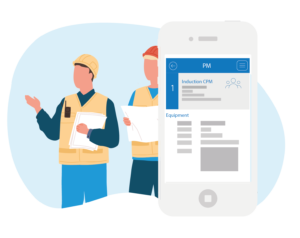What is a CPN for apartment?
Background checks and credit history reports are part of resident screening meant to help property managers find qualified renters in a wide pool of applicants.
When applying for an apartment lease, applicants may provide a Credit Privacy Number (CPN). CPNs are often used by applicants for privacy purposes or to avoid scrutiny for financial indiscretions.
In this blog, we highlight what is a CPN apartment, how to apply for an apartment with a CPN, and the potential risks for landlords.
Multifamily software used by the top ten NMHC managers
Take full control of the lead-to-lease process

What is a CPN?
A Credit Privacy Number (CPN) is a nine-digit number that can be used instead of a Social Security Number (SSN) when filling out applications for a loan, lease, or any other purchase that requires a credit check.
A CPN for an apartment refers to prospective tenants utilizing this unique number during their apartment application phase, aiming to keep their personal information secure.
CPNs are not inherently illegal. However, many CPNs are linked to real SSNs that have been exposed to data breaches and made accessible through an online black market. Those numbers are bought by dealers who can scrub the SSNs and open new lines of credit for the sole purpose of racking up a respectable score for a buyer to claim as their own.
Those in the multifamily business must take a more meticulous approach during the resident screening phase, ensuring the authenticity of the provided details.
Why use a CPN for an apartment?
The main reason to use a CPN for an apartment application is for privacy protection. Your SSN contains a lot of your private information, which you may be wary of sharing due to the risks of identity theft. Individuals, such as celebrities or people with high-security demands, may use a CPN to keep their financial and personal data away from landlords or property managers.
How can people apply for an Apartment with a CPN?
Applying for an apartment with a CPN can be tricky as not every landlord will accept it due to concerns about credibility and potential misrepresentation. This alternative number is often viewed with suspicion, as some landlords associate it with attempts to conceal poor credit or rental histories.
Here we outline how you can potentially apply for an apartment with a CPN:
Contact the property owner
It is important to directly communicate with the apartment owner or property manager before you make your application. Explaining your intent to use a CPN in the application can potentially prevent any later misunderstandings that result in an unsuccessful application.
Fill out an application
If the apartment owner or property manager has stated that they accept CPNs, you can then fill out a lease application. Instead of providing your SSN, you will provide your CPN. It is important to provide an accurate and credible CPN number.
Show at least 2 years proof of rental history
Your landlord will need proof that you are a responsible renter who will pay your rent on time. To do this, you can present valid and transparent records from the previous 2 years of tenancies. Having a consistent and clean rental track record can reassure potential landlords, even when using a CPN.
Pay attention to employment requirements
Each landlord might have specific prerequisites regarding employment. It is essential to understand and meet these criteria before using a CPN in your application. Ensure that you have pay stubs, W-2s, bank statements, and any other documents that can help prove your employment.
Show the correct pay stubs
You will also need to prove your financial stability to your potential landlord with pay stubs. It is essential to provide accurate and recent pay stubs. This can assure the landlord that you can make your monthly payments.
Who is at risk with a CPN?
While CPNs have their benefits, misuse can introduce risks, especially for unsuspecting landlords. A tenant might use a CPN to conceal a blemished financial history, posing challenges for landlords who rely on complete transparency. This can also put their rental community at risk, as the renter may be committing tenant fraud.
Often, the creation of CPNs makes financial victims out of unsuspecting people whose SSNs have been stolen. And regardless of how the service has been advertised to them, whether as a clean slate for one’s credit history or a quick fix for bad credit, unsuspecting CPN buyers could end up breaking the law, resulting in fines or even jail time.
How can you manage this risk at your multifamily property?
With technology that’s easy to use and readily available, fraudulent prospects are harder to spot than ever before. With all the risks of CPN misuse, how can your property mitigate the risk of fraud during the application process?
One of the best ways to defend against CPNs is by utilizing a suite of property risk management solutions that includes ID verification, screening, and renters insurance programs designed to keep you, your residents, and your property safe.
The innovative and comprehensive resident screening services will help your property avoid unnecessary costs associated with turning an apartment or even evictions. These solutions enable your property to efficiently identify qualified prospects instead of wasting time on unqualified leads.
Learn how to protect your multifamily business from fraud in this webinar.
FAQs about what is a CPN apartment
Multifamily Tour Path Inspection Guide
Showing off your multifamily property is one of your first and best opportunities to “wow” prospective residents. As such, completing a tour path inspection is essential to a successful leasing experience. MRI Living is here to help you p…

